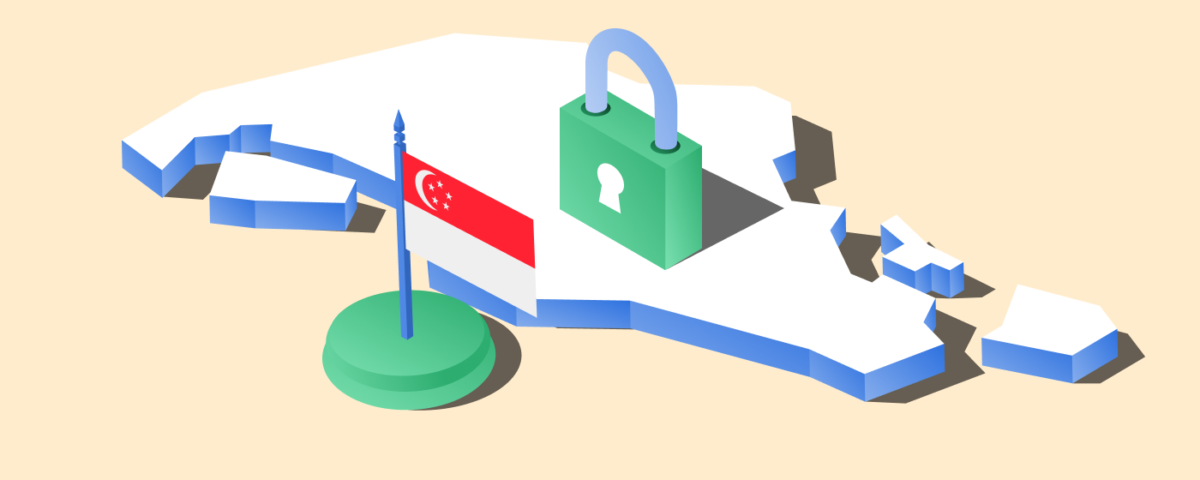
Why AI is Essential for Scaling Marketing Campaigns in 2024
January 24, 2025
The Rise of Generative AI in Video Marketing
February 4, 2025
Introduction
In today’s digital economy, data is one of the most valuable assets. Companies collect and process vast amounts of personal data for various purposes, from improving customer experiences to optimizing marketing strategies. However, with this data collection comes the responsibility of protecting individuals’ privacy. In Singapore, the Personal Data Protection Act (PDPA) serves as the cornerstone of data protection, ensuring that businesses handle personal data responsibly while empowering individuals with greater control over their information.
This article explores how the PDPA protects individuals and regulates organizations, covering its key principles, compliance requirements, enforcement mechanisms, and the impact on businesses and consumers.
What is the PDPA?
Enforced by the Personal Data Protection Commission (PDPC), the PDPA governs the collection, use, and disclosure of personal data by organizations in Singapore. The law aims to strike a balance between allowing businesses to leverage data for innovation and safeguarding individuals’ privacy rights.
The PDPA applies to all private sector organizations operating in Singapore, including businesses, non-profit organizations, and service providers. However, public agencies and employees acting in a personal capacity are exempt from its provisions.
Key Principles of the PDPA
The PDPA is built upon nine key obligations that organizations must adhere to when handling personal data:
1. Consent Obligation
Organizations must obtain clear and informed consent before collecting, using, or disclosing an individual’s personal data. Consent should be voluntary, and individuals should be given the option to withdraw their consent at any time.
2. Purpose Limitation Obligation
Organizations can only collect, use, or disclose personal data for specific, reasonable, and legitimate purposes that have been disclosed to the individual.
3. Notification Obligation
Before collecting personal data, organizations must inform individuals about the purpose of data collection and how their information will be used.
4. Access and Correction Obligation
Individuals have the right to request access to their personal data and seek corrections if the information is inaccurate or incomplete.
5. Accuracy Obligation
Organizations must take reasonable steps to ensure that personal data remains accurate and up to date to prevent misinformation or errors.
6. Protection Obligation
Organizations must implement security measures to safeguard personal data against unauthorized access, collection, or leaks. This includes cybersecurity defenses, encryption, and internal data protection policies.
7. Retention Limitation Obligation
Personal data should not be retained longer than necessary. Organizations must establish clear data retention policies and securely dispose of data that is no longer needed.
8. Transfer Limitation Obligation
If personal data is transferred outside Singapore, organizations must ensure that the receiving country offers comparable data protection standards to those outlined in the PDPA.
9. Accountability Obligation
Organizations must be transparent and responsible in handling personal data. They should appoint a Data Protection Officer (DPO) and develop internal policies to comply with the PDPA.

How the PDPA Protects Individuals
1. Empowering Individuals with Data Control
The PDPA gives individuals more control over their personal information by requiring organizations to seek consent and provide access to data. This empowers consumers to make informed decisions about how their data is used.
2. Protection from Unwanted Marketing Messages
The Do Not Call (DNC) Registry under the PDPA allows individuals to opt out of receiving unsolicited telemarketing calls, SMS, and faxes. Businesses that violate DNC rules face penalties.
3. Legal Recourse for Data Breaches
Individuals can lodge complaints with the Personal Data Protection Commission (PDPC) if they believe their data has been mishandled. The PDPC investigates cases and can impose fines or corrective actions on non-compliant organizations.
4. Transparency in Data Handling
The PDPA ensures that businesses are transparent about their data policies. Individuals can request details on how their data is collected, stored, and shared, fostering trust and accountability.
5. Protection Against Identity Theft and Fraud
By enforcing strict security measures, the PDPA helps reduce risks associated with data breaches, including identity theft and financial fraud.
How the PDPA Regulates Organizations
1. Compliance Requirements for Businesses
Organizations must implement policies and procedures to meet PDPA obligations, such as appointing a Data Protection Officer (DPO), conducting staff training, and implementing security controls.
2. Enforcement and Penalties
The PDPC actively enforces compliance by conducting audits and investigations. Organizations found in violation of the PDPA can face:
- Financial penalties (up to 10% of annual turnover for serious breaches)
- Public reprimands
- Corrective actions, such as mandatory data protection improvements
3. Data Breach Notification Requirement
Under the 2021 PDPA amendments, organizations must notify the PDPC and affected individuals if a data breach occurs that is likely to result in significant harm.
4. Cross-Border Data Transfers
Businesses transferring data outside Singapore must ensure the receiving organization complies with comparable data protection standards to prevent data misuse.
5. Ethical AI and Automated Decision-Making
With the rise of AI-driven marketing and automation, the PDPA emphasizes ethical AI use and requires businesses to maintain accountability in algorithmic decision-making.

The Impact of the PDPA on Businesses and Consumers
For Businesses:
- Encourages organizations to adopt strong data governance frameworks.
- Builds trust with consumers by demonstrating responsible data practices.
- Helps businesses avoid costly penalties and reputational damage from data breaches.
- Enables compliance with international data protection laws, facilitating cross-border trade.
For Consumers:
- Provides assurance that their personal data is handled securely and transparently.
- Allows them to exercise their rights over their data, including access and correction.
- Reduces risks of receiving unwanted marketing messages and potential data abuse.
Conclusion
The Personal Data Protection Act (PDPA) plays a crucial role in safeguarding individuals’ privacy while ensuring that organizations remain accountable for handling personal data responsibly. By enforcing clear guidelines on data collection, security, and transparency, the PDPA fosters a trust-based digital economy in Singapore.
As businesses continue to digitize and leverage data for innovation, compliance with the PDPA is no longer optional—it’s a necessity. Organizations that prioritize data protection not only avoid legal repercussions but also enhance customer trust, brand reputation, and long-term success.
By understanding their rights and responsibilities under the PDPA, both individuals and organizations can navigate the evolving digital landscape safely and effectively.


